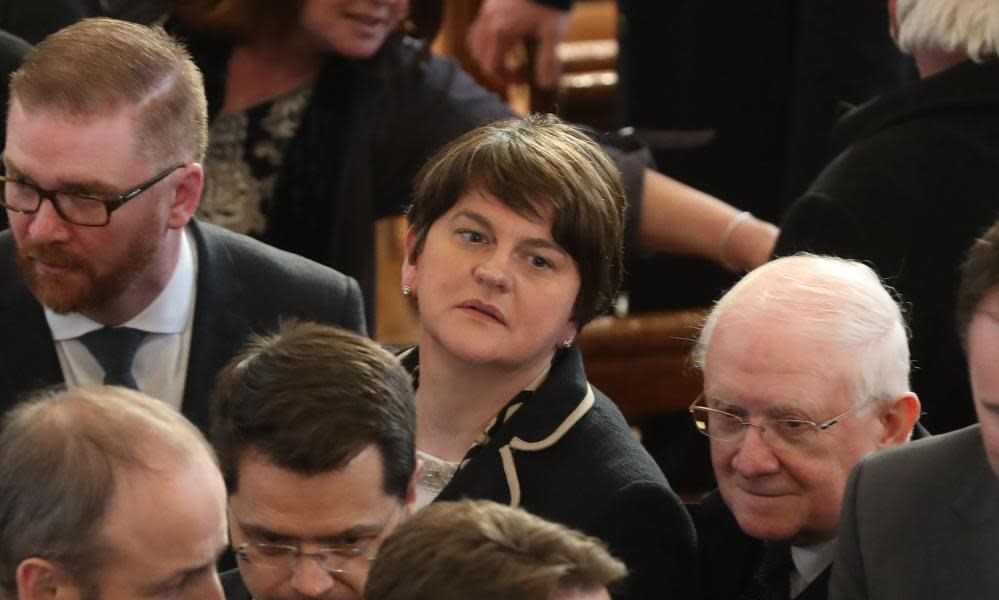The Guardian view on the funeral of Martin McGuinness: enlarging the definition of ‘us’ | Editorial

The woman walks into the church and up the aisle, her head bowed, almost as if she does not wish her arrival to be noticed. Her uncertainty is understandable, for this is a highly charged day in a Catholic church in a Catholic part of the city. But the woman is a prominent Northern Irish protestant leader and this is still a divided community.
As she is shown to her pew, however, something unusual happens. In the gallery people start to applaud. There is even some cheering. The woman looks up at the loud applause and smiles. The clapping spreads.
In a difficult week when the national news has been dominated by evil deeds, it can be tempting to snatch too fast at moments of hope and goodness. The applause for Arlene Foster at the funeral of the former IRA and Sinn Féin leader Martin McGuinness in St Columba’s church in Derry was nevertheless one of these moments. True, it may have served a political purpose for Sinn Féin supporters in the church in Derry’s Bogside to greet the DUP leader so generously. But the purpose – the resumption of power sharing in Northern Ireland – is in everyone’s interests.
Northern Ireland’s past and possibly future first minister can be a divisive figure. Her back story partly explains why. Her father was shot by the IRA during the Troubles; when she was 16 her school bus was attacked by an IRA bomb. In her 15 months as DUP leader, Mrs Foster has cooperated with Sinn Féin through gritted teeth, courted controversy with sectarian comments and decisions over the “cash for ash” scheme and the Irish language, and has been accused of governing as if Catholics didn’t exist.
Perhaps Mrs Foster always really planned to attend Mr McGuinness’s funeral. But she hesitated very publicly about whether to do so. She could easily have stayed away, as she tends to when anything involving republicans is involved. Yet wiser counsels, and perhaps her own instinct, prevailed. Maybe she had no alternative. But her choice was magnanimous, dignified and right.
In a masterly speech at the funeral, Bill Clinton was also right to salute Mrs Foster’s decision while empathising with her caution. The public appreciation for her presence was warm and genuine. A handshake with Sinn Féin’s Michelle O’Neill, conducted behind Gerry Adams’s back as the congregation dispersed, was important too.
These things matter because there is no principled alternative to political cooperation and peace-building in Northern Ireland – and great danger from their absence. Working with one another almost always beats fighting one another. Both parts of Ireland also have serious work to do in mitigating the divisive dangers of Brexit. Mrs Foster saw the bigger picture by making the symbolic decision on the funeral. She must keep the bigger picture firmly in mind on these more substantial issues too.
At the end of a week when Britain was scarred by the latest act of terror in London, the scene in Derry offers wider lessons. Mr McGuinness led a complex life of both bad and good but, in the end, as Mr Clinton put it, he “expanded the definition of ‘us’ and shrank the definition of ‘them’”. A similar challenge faces Britain. The London attacker exulted in an antagonistic world of them and us. Theresa May eloquently rejected that in her words this week. But nurturing the “us” of modern Britain requires constant work and imagination, and is not made easier by Brexit.

 Yahoo News
Yahoo News 
